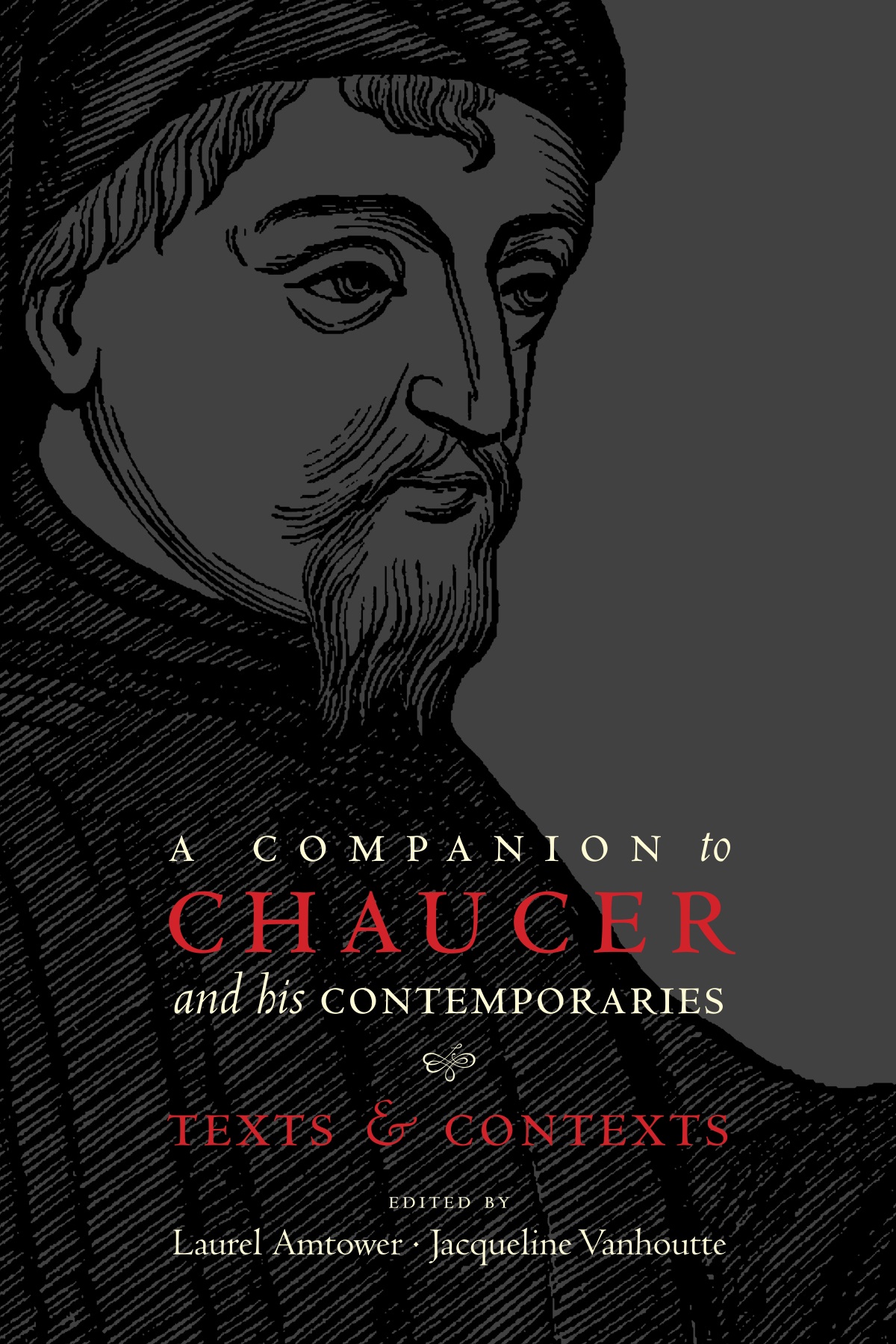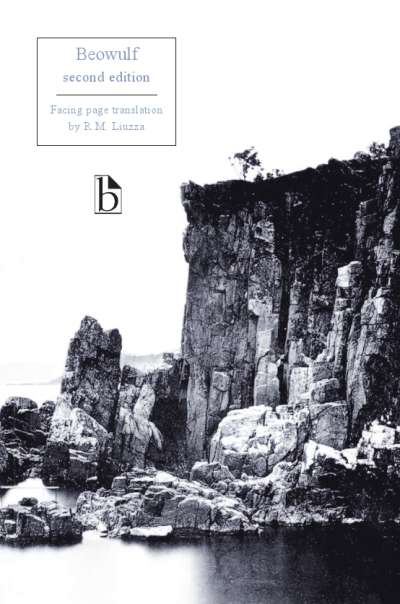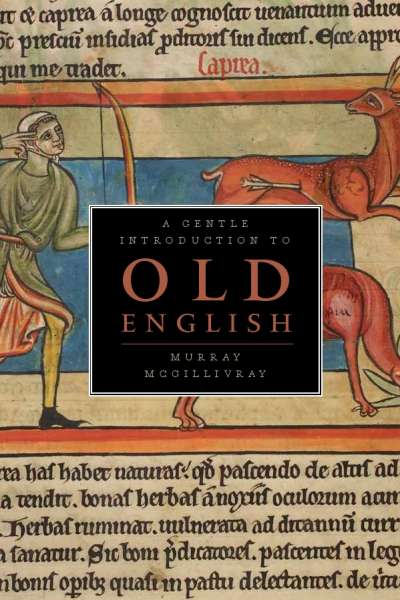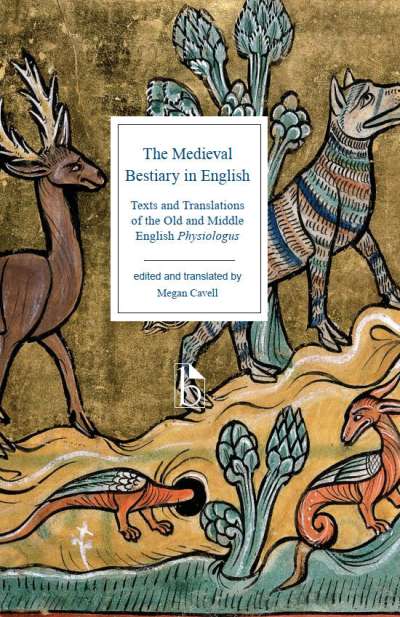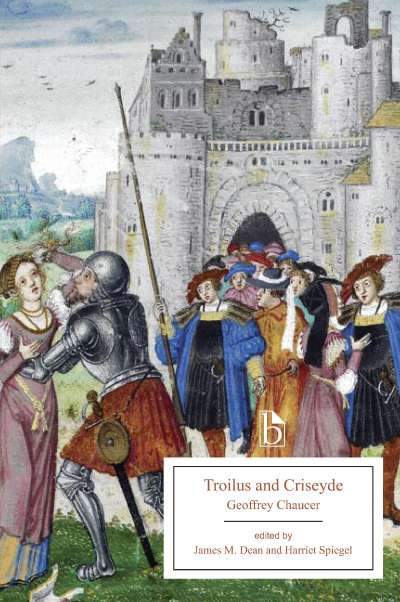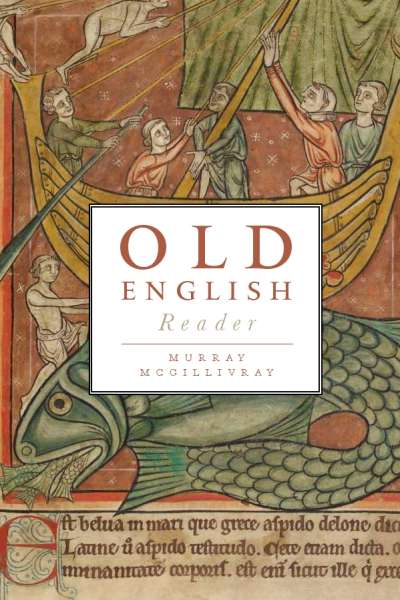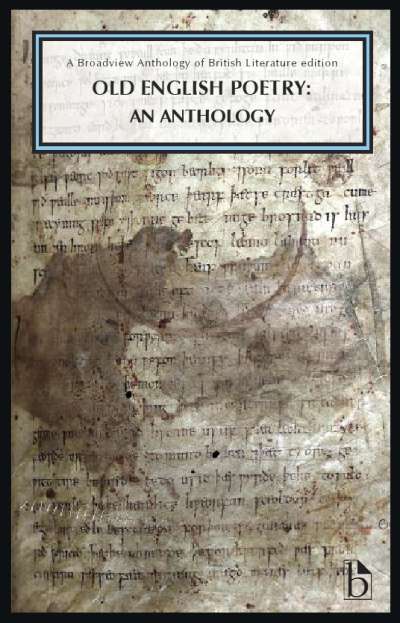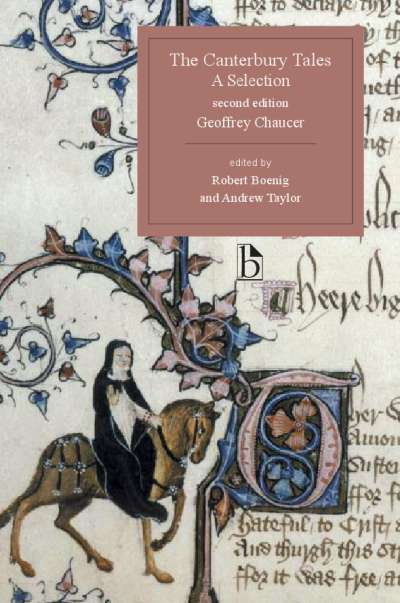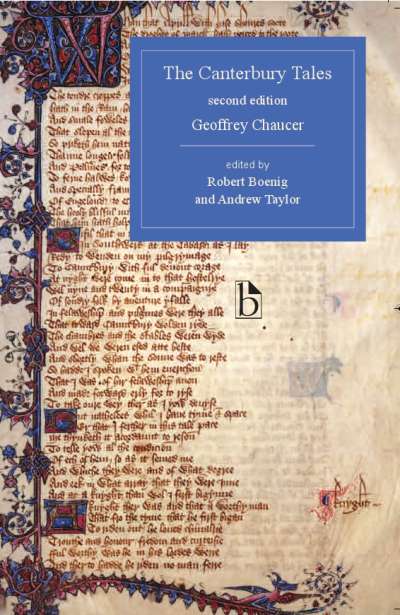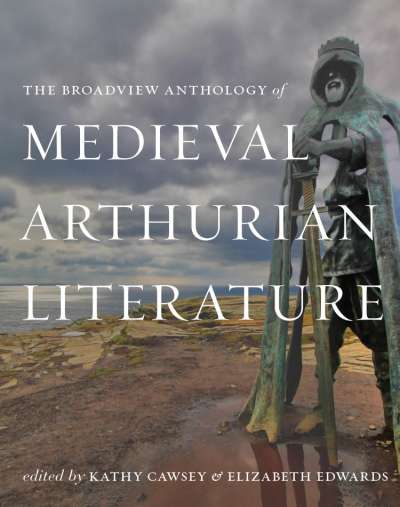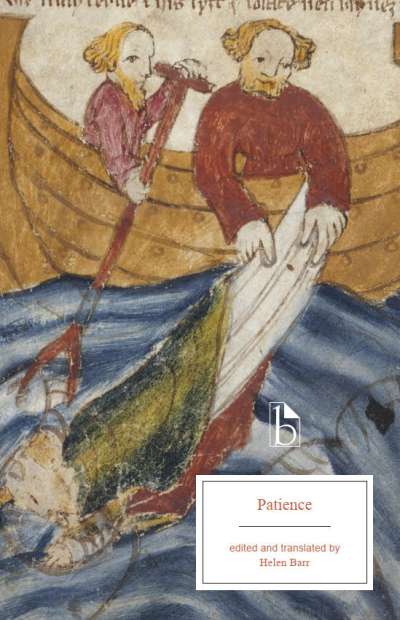A Companion to Chaucer and his Contemporaries provides a detailed introduction to medieval culture, broadly considered. This sourcebook gives readers fuller access to Middle English literary works by situating these works within their sometimes alien historical and cultural contexts. Chapters open with an overview that suggests how contemporary debates and attitudes influence meaning in works like the Canterbury Tales, Piers Plowman, and Mankind. The main body of the text is thematically arranged primary documents and illustrations, such as excerpts from the chronicles, law treatises, sermons, court records, medical and alchemical tracts, and performance records, as well as maps and manuscript illustrations.
Comments
“This invaluable collection offers students a first-hand glimpse of the diversity of voices and ideas that underlie, complicate, and exceed the canonical literature of the later Middle Ages.” — Nathanial B. Smith, Pedagogy
“A Companion to Chaucer and his Contemporaries will be essential to teaching Chaucer in the 21st century. It gives students direct and convenient access to the documents and texts that have changed the way we think about late medieval literature. From the dramatic vistas of rebellions, heresies and schisms to the practice of everyday life, the texts provided by Amtower and Vanhoutte demonstrate how history and literature shape each other, both in the Middle Ages and in our own time.” — John Ganim, Professor of English, University of California Riverside and former President of the New Chaucer Society
PREFACE
CHAPTER 1
POLITICS AND IDEOLOGY IN THE FOURTEENTH CENTURY
INTRODUCTION
- Civil Conflict and the War with France
The Plague
The Peasant’s Revolt
The Merciless Parliament and Its Repercussions
The Lancasters
DOCUMENTS
- Edward III Makes Ready for War (1337)
Close Roll (1337)
Statutes of the Realm (1340)
The Battle of Poitiers. Henry Knighton (1346)
The Plague. Henry Knighton (1348-50)
The Plague and Its Aftermath. Henry Knighton (1349)
Statute of Laborers (1351)
Alice Perrers. Thomas Walsingham (late 14thc)
The Poll Tax (1380)
John Ball. Thomas Walsingham (1381)
The Burning of the Savoy. Thomas Walsingham (1381)
The King’s Dire Straits. Thomas Walsingham (1381)
The Death of Wat Tyler. Thomas Walsingham (1381)
Richard’s Words to the People. Thomas Walsingham (1381)
Proclamation for Keeping the Peace within the City (1381)
Letter from Richard Revoking Their Liberties. Thomas Walsingham (1381)
John Ball Letters (1381)
A Censure of the Mendicant Friars. Thomas Walsingham (late 14thc)
The Merciless Parliament (1388)
Deposition of Richard II (1399)
Henry IV’s words to Richard II, upon Richard’s Abdication. Froissart (1399)
Coronation of Bolingbroke (1399)
Death of Richard II. Froissart (1400)
St. Joan’s Appearance to Deliver France (1429)
CHAPTER 2
“FROM EVERY SHIRES ENDE”: THE STRUCTURE OF SOCIETY
INTRODUCTION
- The Three Estates
Social Conflict and Social Change
The Situation of Women
The Anti-Feminist Tradition
DOCUMENTS
- The Treatise on the Laws and Customs of the Realm of England Commonly Called Glanville (12thc)
The Sumptuary Laws of 1363 and 1463
Apprenticeship Contracts (13thc)
The Oath for the Issue of Apprentices (15thc)
The Petition of the Tailors against Nicholas Brembre (1386)
On Amazons
Men, Women, Wives, Husbands, and Servants. Bartholomew Anglicus (trans. 1397)
The Ballad of the Tyrannical Husband (15thc)
Chaucer and the Raptus of Cecily Chaumpaigne (1380)
Widows and Clerical Anti-Feminism. Christine de Pizan (1405)
Fourteenth-Century Court Cases Involving Women
First Epistle to the Corinthians (1388)
“The Wife Is Subject to the Husband.” John Wyclif (c. 1378 and 1384)
The Clerical Tradition on Women
CHAPTER 3
“OF METE AND DRYNK”: DAILY LIFE IN MEDIEVAL ENGLAND
INTRODUCTION
- Medieval London
Getting Around
The Country
Daily Activities
Food and Drink
Medieval Money
DOCUMENTS
- Coroners’ Cases and Court Cases (14thc)
Of Swine, Bawds, Thieves, and Courtesans (14thc)
The Goodman’s Instructions on Hosting, Cooking, and Serving (1392-94)
A Feast Fit for a King (14thc)
Letters from the Pastons (15thc)
On Manners (15thc)
CHAPTER 4
“HOOLY THOUGHT AND WERK”: RELIGIOUS LIFE, RITUAL, AND PRAYER
INTRODUCTION
- Popular Religion and Daily Life
The Clerical Hierarchy
Anti-Semitism
Religious Orders and Religious Professionals
Corruption and Anticlericalism
DOCUMENTS
- From On Christian Doctrine. St. Augustine (c. 396-427)
“Religious Symbolism.” William Durandus (1286)
“The Lives of Spiritual Women.” The Ancrene Wisse (13thc)
“Interpretations of Biblical Verse on the Conduct of Women.” The Ancrene Wisse (13thc)
Alma Redemptoris Mater (11thc)
A Myrour to Lewde Men and Wymmen (14thc)
“Against Pilgrimage.” Lollardist Treatise (14thc)
Margery Kempe’s Pilgrimage to Rome and Jerusalem. Margery Kempe (c. 1436-38)
“The Two Powers.” Hugh of St. Victor (1134)
A Punishment for Lollardy (1389)
“Epistola 391: On the Jews.” Bernard of Clairvaux (early 12thc)
The Murder of Hugh of Lincoln. Matthew of Paris (1255)
The Papal Bull Defending the Jews. Gregory X (1272)
Vox Clamantis. John Gower (c. 1380s)
On the Pope. John Wyclif (1370s)
Bull of Pope Gregory XI, Against John Wycliffe (1384)
Twelve Conclusions of the Lollards (1395)
Against Confession. Lollard Treatise (1394)
“The Case for Translation.” John Wyclif (1370s)
On Biblical Translation. Lollard Treatise (early 15thc)
The Constitutions of Archbishop Arundel Against the Lollards (1409)
CHAPTER 5
“TROUTHE AND HONOUR, FREEDOM AND CURTEISIE”: WAR, PAGEANTRY, AND THE KNIGHTHOOD
INTRODUCTION
- The Origins of Chivalry
Chivalry and Courtly Love
Practicing Knighthood
Chivalric Orders
Warfare and the Crusades
Class Antagonism
DOCUMENTS
- The Book of the Order of Chivalry. Ramon Llull (c. 1276, trans. 1484)
The Tree of Battles. Honoré Bonet (1387)
Letter of Othea to Hector. Christine de Pizan (1399-1400)
The Art of Courtly Love. Andreas Capellanus (1184-86)
The Book of Chivalry. Geoffroi de Charny (c. 1350)
The Jousts in Smithfield. The Brut, or Chronicles of England (1388)
Free Companies. Froissart (c. 1356)
The Black Prince’s Revenge on Limoges. Froissart (1370)
Order of the Garter. Froissart (1344)
The Condemnation of the Templars (1312)
Statute on Livery and Maintenance (1390)
The Defender of Peace. Marsilius of Padua (1324)
The Conquest of Alexandria. Petrarch (1365)
The Capture of Alexandria. Guillaume de Machaut (after 1369)
Relations with the Franks. Ousama Ibn Mounkidh (12thc)
From Vox Clamantis. John Gower (c. 1380s)
The Two Ways. John Clanvowe (late 14thc)
Epilogue to the Book of the Order of Chivalry. William Caxton (1484)
CHAPTER 6
“GLADLY WOLDE HE LERNE AND GLADLY TECHE”: READING, LITERACY, AND EDUCATION
INTRODUCTION
- Education
The Medieval Commentary Tradition
Humanism
The Arrival of the Printing Press
DOCUMENTS
- The Boke of Curtasye (c. 1460)
A Fifteenth Century School Book (late 15thc)
Aristotle’s ABC (early 15thc)
Morale Scolarium. John of Garland (13thc)
Rules of the University of Paris (c. 1215)
Studies Necessary Before Admission as a Master of Arts, 1431
The Statutes of New College, Oxford (1400)
The Study of the French Language and English Law at Oxford (1432)
The Commons Protest Against the Misbehaviour of the Scholars and Clerks of Oxford (1421)
Letter to Can Grande. Dante (early 14thc)
The Philobiblon. Richard de Bury (14thc)
Genealogy of the Gentile Gods. Giovanni Boccaccio (1360-74)
The Prologues and Epilogues. William Caxton (15thc)
CHAPTER 7
“MAGYK NATUREEL”: SCIENCE, MEDICINE, PSYCHOLOGY, AND ALCHEMY
INTRODUCTION
- Medieval Science: Theory and Practice
The Elements
The Humours and Human Temperament
DOCUMENTS
- On the Natural Faculties. Galen (170)
Of the Four Complexions (14thc)
Of the Science of Physiognomy from the Secreta Secretorum (1422)
An Arab Opinion of the Crusaders’ Medicine (12thc)
A Lollard View on Bodily and Spiritual Blindness (14thc-15thc)
From De Coitu (On Intercourse). Constantinus Africanus (11thc)
From On the Properties of Things. Bartholomew Anglicus (13thc)
Various Remedies. Gilbertus Anglicus (13thc)
On Lycanthropia (6th c)
Two Medical Cases (late 14thc)
On Natural Magic (16thc)
On Animals (12thc and 13thc)
From The Ordinal of Alchemy. Thomas Norton (1477)
“On Dreams.” Macrobius (c. 395-423)
CHAPTER 8
“TO FLAUNDRES WOL I GO”: INTERNATIONAL INFLUENCES AND EXCHANGES
INTRODUCTION
- Late Medieval Conceptions of the World
England and the Continent
The Stranger in Their Midst
DOCUMENTS
- Information for Pilgrims (c. 1500)
From Mandeville’s Travels (1356-57?)
On Various Countries. Bartholomew Anglicus (13thc)
From The Libelle of English Policy (15thc)
Court Cases (14thc)
The Murder of Janus Imperial (1379)
The Rights of Aliens and the Petition of the Hansards (1389)
The Massacre of the Flemish (1381)
Mandate of Payment to Geoffrey Chaucer (11 November 1373)
BIBLIOGRAPHY
SOURCES
Laurel Amtower is Professor of English and Comparative Literature at San Diego State University.
Jacqueline Vanhoutte is Associate Professor of English at the University of North Texas, Denton, Texas.

